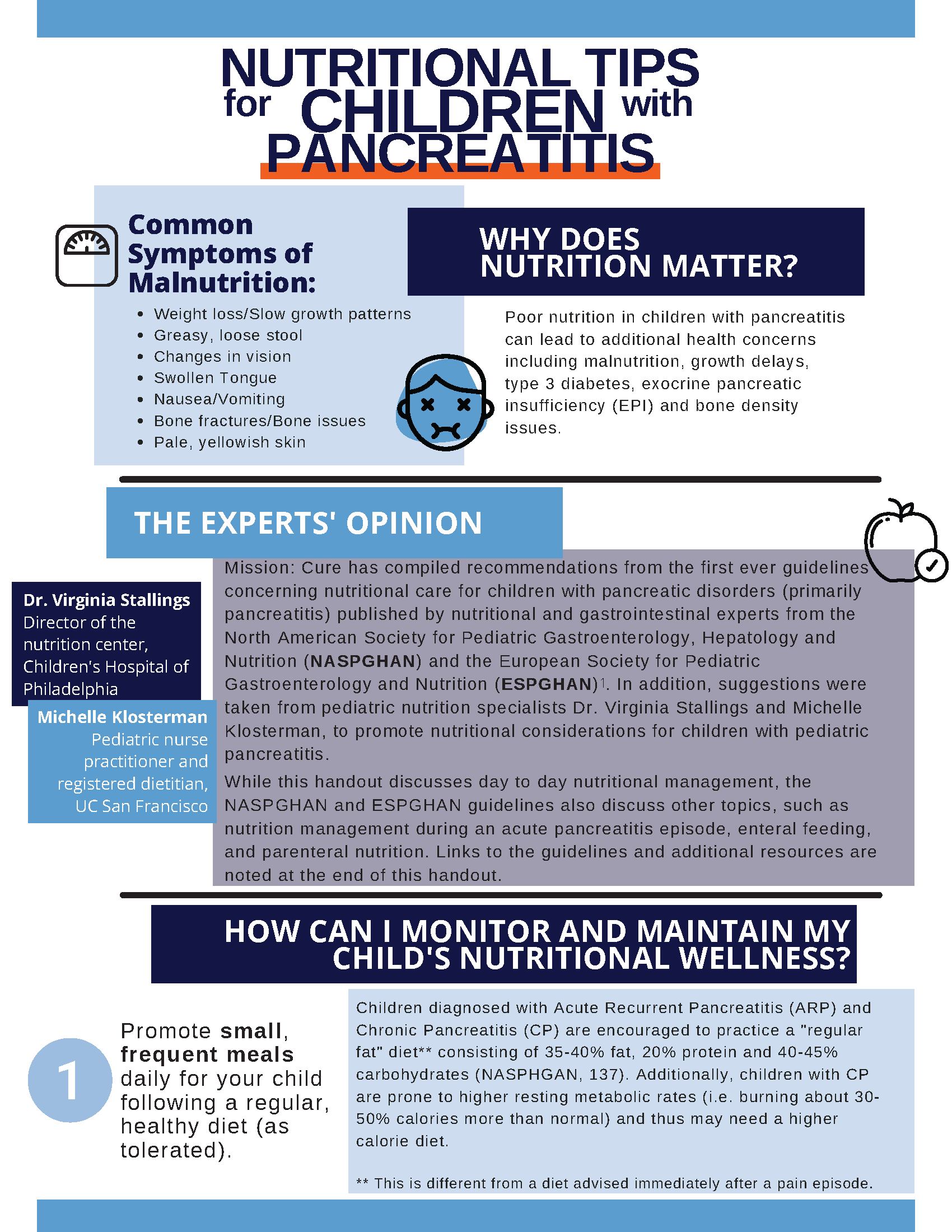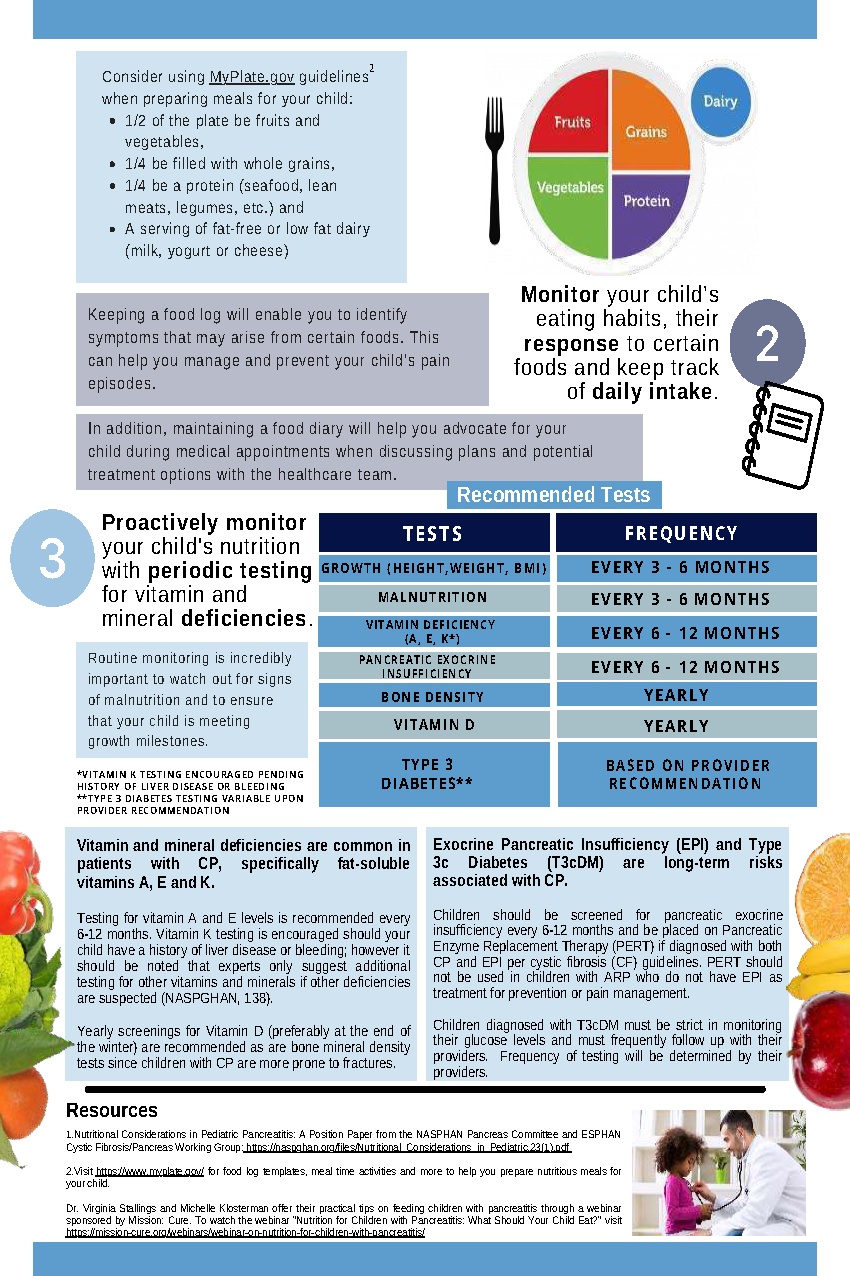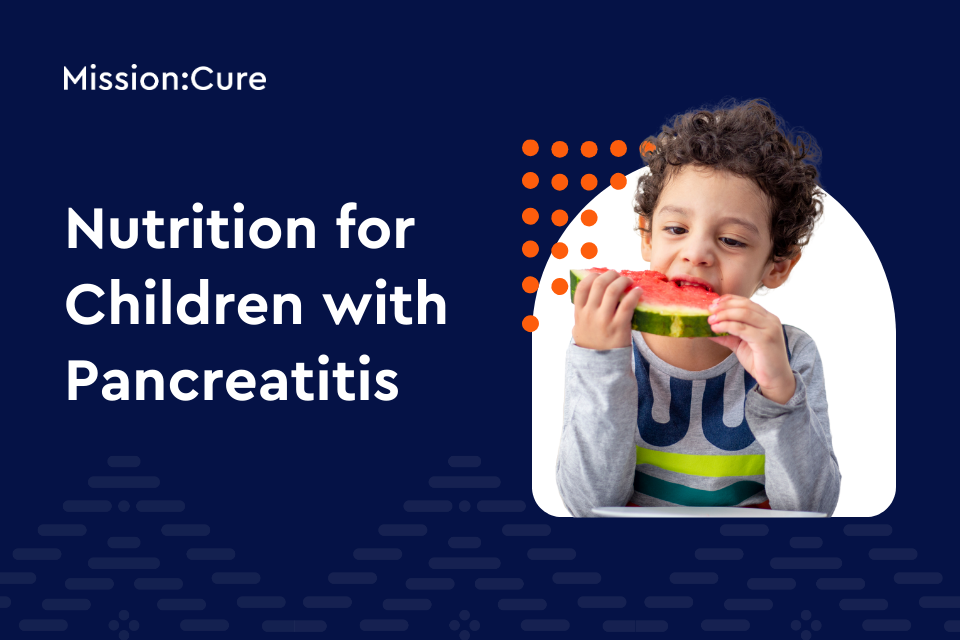Making sure your child is getting all the nutrients they need while living with pancreatitis can be difficult. Poor nutritional management can lead to additional health concerns such as malnutrition and bone health issues.
Mission: Cure has compiled recommendations developed by nutritional and gastrointestinal experts to assist in making sure your child’s needs are met. Read our handout, “Nutritional Tips for Children Living with Pancreatitis”, to learn more about diet and recommended testing for children living with pancreatitis.


Pancreatitis in children often leads to malnutrition and additional health problems. Symptoms of malnutrition include weight loss, slow growth patterns, greasy and loose stool, loss of bone density, and nausea.
In order to monitor and maintain the nutritional wellness of your child in the long term, experts recommend:
- A regular, healthy diet (as tolerated). Encourage small and frequent meals that include a healthy balance of fat, proteins, and carbohydrates.
- Monitoring your child’s eating habits and response to certain foods and keeping track of daily intake. It helps identify symptoms that may trigger pain episodes and help advocate for your child during appointments.
- Periodic testing for vitamin and mineral deficiencies to proactively prevent malnutrition and ensure your child is meeting growth milestones. Recommended tests for pediatric chronic pancreatitis include growth parameters, bone density tests, pancreatic exocrine insufficiency and tests to check for vitamin A,D. E, and K.
For a complete list of tests and other tips on managing nutritional well-being of your child, download our handout.

